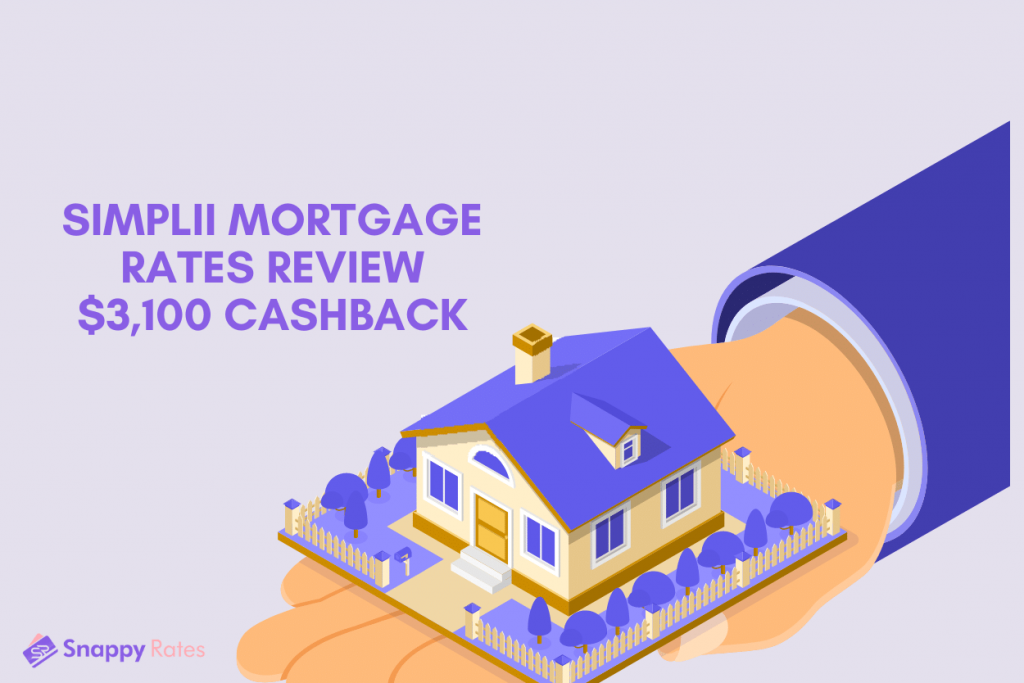In Canada, the mortgage system is nationalized, so mortgage and lending policies are similar throughout the country.
Canadian mortgages usually involve five-year fixed terms. About two-thirds of Canadians are homeowners, and around half of those homeowners hold a mortgage. That means that many Canadians are curious about mortgage statistics.
Are you wondering what the typical Canadian mortgage looks like? What about how mortgage debt differs across provinces, age groups, and other demographic factors?
If so, you’re in the right place. In this comprehensive guide, we’ll cover the ins and outs of Canadian mortgages so that you’re always in the know.
General Mortgage Stats
As of the last census, Canada’s housing stock amounts to 15.5 million homes. According to the Bank of Canada, about one-third of Canadians hold a mortgage, so there are around 12 million mortgages in play currently. So what do these mortgages look like?
The average loan size in 2022 was $363,654, although this varies significantly from province to province. Most Canadian mortgages are shorter-term mortgages, with the initial term set at five (5) years.
Mortgage holders generally need more than one term to pay off a mortgage, however, so they’ll generally need to renew their mortgage a number of times.
How long is the average mortgage in Canada?
On average, it takes homeowners 20 to 25 years to pay off a mortgage in Canada. This applies whether they renew a shorter-term mortgage or opt for a longer-term mortgage with a fixed rate.
When taking on a mortgage, 20 to 25 years is a good amount of time to plan for it affecting your finances.
Canadian Mortgage Debt by Age
More and more Canadian senior citizens are taking mortgage debt into their retirement. In a recent study on debt in retirement conducted by HomEquity Bank and Equifax Canada, findings showed that mortgage debt among seniors is increasing.
For seniors aged over 70 years, mortgage debt has increased by 12% over the past ten (10) years.
This study discovered that 16.5% of people aged 55 and over are still carrying mortgage debt. In terms of Canada’s seniors, the average mortgage balance is highest for those aged between 55 and 60. It’s lowest for those over 75, clocking in at $134,000 on average.
But seniors don’t have it worst in terms of mortgage debt. Canadian adults and households aged 35 to 44 hold $466,776 in mortgage debt on average. That number slightly decreases for the 45 to 54-year-old age group, coming in at $434,090.
For people aged 55 to 64, the average mortgage debt is $216,873, meaning that it’s a popular time to make significant payment progress on mortgages.
Related: Learn the average retirement savings by age in Canada.
Canadian Mortgage Debt by Province
The average mortgage loan size differs greatly from province to province. According to an analysis conducted by Finder, the highest average loan value occurs in British Columbia, where the number comes in at $496,262.
Ontario ranks at a close second, with its average mortgage loan size measuring $469,202.
New Brunswick has the lowest average mortgage loan size at just $189,156. StatCan notes that these geographic differences can be attributed to the disparity in the housing market across Canada.
For example, Vancouver’s median home value rose to $900,000 over the past year. That’s more than double Montréal’s median home value of $350,000.
So how did these large cities end up with such stark differences in net worth? StatCan attributes the disparity to varied housing market strength across Canada.
For example, the median home value in Vancouver rose to $900,000, more than double the median home value in Montréal, which remains at only $350,000.
Related: Personal Loan Debt Statistics in Canada.
Average Monthly Mortgage Payment
While New Brunswick has the lowest average mortgage loan size, its average monthly mortgage payment amount increased the most over the past year.
From 2021 to 2022, New Brunswick’s prices increased 24%, from $933 to $1,161. Still, BC boasts the highest average monthly mortgage payment amount, clocking in at $2,235.
Mortgage Delinquency Rates
Mortgage delinquency occurs when homeowners are at least 30 days overdue on at least one mortgage payment.
Overall, Canada has a mortgage delinquency rate of 0.14% on average. Saskatchewan’s delinquency rate is the highest among the provinces at 0.51%.
Newfoundland and Labrador has the second-highest mortgage delinquency rate at 0.38%. Ontario’s is the lowest, measuring just 0.08%.
The provinces also have varying levels of total outstanding mortgage debt. Ontario’s outstanding mortgage debt is by far the highest, measuring about $594 billion.
Québec comes in a not-so-close second, with outstanding mortgage debt at $258 billion. Prince Edward Island has the smallest amount of outstanding mortgage debt at only $2.3 billion, in line with its smaller population.
Fixed-Rate vs. Variable-Rate Mortgages
When buying a home, one of the first big decisions homeowners have to make is choosing the type of mortgage they want to take on.
With a fixed-rate mortgage, both the mortgage rate and the payment you make every month will stay the same throughout the term of your mortgage.
If you choose a variable-rate mortgage, the mortgage rate will change depending on the prime lending rate that your lender sets. In general, variable rates tend to be a bit lower than fixed rates. That’s because they are less risky for lenders.
The Canadian Mortgage Market
In 2021, the residential mortgage market grew 9% year over year as a result of strong housing market activity and record-low interest rates.
Today, inflation and recession conditions in the economy have slowed the mortgage market and have raised interest rates.
Canada’s “Big Six” banks (TD, RBC, Bank of Montreal, Bank of Nova Scotia, CIBC, and National Bank of Canada) control an 80% share of the mortgage market.
With rising rates, however, smaller banks and credit unions have begun making some headway as borrowers become more discerning and are searching for ever-lower rates.
Related: Check out our review of Simplii mortgage rates.
Total Mortgage Debt
In total, Canada has about $1.75 trillion of debt in outstanding mortgages. Compared with other G7 nations, Canada has the highest mortgage debt. This is partially explained by Canada’s high price-to-income ratio – in other words, Canada has an expensive housing market.
Rising Rates and the Impact of Inflation
So far, in 2022, the Bank of Canada has increased rates by 300 basis points. Mortgage rates have risen substantially and are now sitting at 5.88% as the average mortgage lending rate for a conventional mortgage with a five-year initial term.
Types of Mortgages
There are many different types of mortgages in Canada that you should consider when looking to buy a home. First off, there are high-ratio mortgages and conventional mortgages.
If you put down less than 20% of the home’s value when you buy a home, you’ll find yourself in a high-ratio mortgage. If you put down more than 20%, you’ll get a conventional mortgage.
High-ratio mortgages require insurance and are also called “insured mortgages.” That’s because the bank wants to make sure it gets its money back when you’re borrowing more than 80% of the value of your home.
Another distinction to make is between fixed-rate and variable-rate mortgages. With a fixed-rate mortgage, you’ll pay the same interest rate for the entirety of your mortgage term.
With variable-rate mortgages, your rate is subject to change depending on how the Bank of Canada moves rates.
You’ll also choose between an open and a closed mortgage. Open mortgages allow you to pay as much as you want – in other words, you could pay off the mortgage early.
Closed mortgages only allow you to pay a certain amount or else be subject to penalties or fees.
Sources
FAQs
What percentage of Canadians have mortgages?
About one-third, or 33% of Canadians, have mortgages. About two-thirds of Canadians are homeowners, and only half of those individuals own their homes outright.
What is the average Canadian mortgage amount?
The average mortgage loan amount in 2022 was $363,654. That number decreased by 2% throughout the year 2022 and decreased even further from its value in 2021.
How many Canadians are behind on mortgage payments?
Recently, mortgage delinquency rates have risen. As many as 4% of Canadians have fallen behind on their mortgage payments, which amounts to around 1.5 million homeowners.
What age does the average Canadian pay off their mortgage?
It takes about 20 to 25 years on average to pay off a mortgage. Most homeowners have fully paid off their mortgages and own their homes outright by the age of 58.


